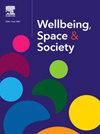探索南非农村社区社会凝聚力的障碍:以家庭为中心的定性研究
IF 2.2
Q2 GEOGRAPHY
引用次数: 0
摘要
在南非,考虑到各种紧迫的挑战,特别是在家庭和社区结构内,加强社会凝聚力的需要变得越来越重要。解决这些问题对于促进所有南非人之间的团结和包容至关重要。本研究采用以家庭为中心的方法探讨了南非两个农村社区的社会凝聚力障碍。它采用以家庭为中心的观点,制定有针对性的干预措施,支持社区、政府官员和政策制定者应对关键的社会挑战,包括信任赤字、无归属感、家庭不稳定和城市间的经济差距。该研究采用了定性的探索性设计,利用了从南非两个农村社区收集的数据:西开普省的兰伯特湾和自由邦省的菲利波利斯。共有19名参加者参与,包括11名家长和8名社区持份者。数据收集是通过深入的面对面访谈进行的,以参与者首选的语言进行,以确保准确性和舒适性。数据分析遵循Braun和Clarke的反身性主题分析方法,并得到Atlas的支持。Ti软件,系统地解释研究结果。结果确定了七个关键主题:家庭不稳定和家庭暴力、不平等和经济差距、对关系缺乏信任、种族歧视、获得教育和技能发展的机会有限、无归属感以及药物滥用和暴力。这些发现强调了家庭不稳定在更广泛的社会凝聚力中作为核心因素的重要性。建议采取以家庭为中心的干预措施。该研究最后提出了支持这些努力的高层政策和社区干预建议。本文章由计算机程序翻译,如有差异,请以英文原文为准。
Exploring barriers to social cohesion in rural South African communities: A family-centred qualitative study
In South Africa, the need to strengthen social cohesion has become increasingly important considering various pressing challenges, particularly within family and community structures. Addressing these issues is crucial for promoting solidarity and inclusion among all South Africans. This study explores the barriers to social cohesion in two rural South African communities using a family-centred approach. It adopts a family centred perspective to develop targeted interventions that support communities, government officials, and policymakers in tackling critical social challenges, including trust deficits, feelings of non-belonging, family instability, and economic disparities across municipalities. The study utilized a qualitative, exploratory design, drawing on data collected from two rural communities in South Africa: Lambert’s Bay in the Western Cape and Philippolis in the Free State Province. A total of 19 participants were engaged, comprising 11 parents and 8 community stakeholders. Data collection was conducted through in-depth, face-to-face interviews in participants’ preferred languages to ensure accuracy and comfort. Data analysis followed Braun and Clarke’s reflexive thematic analysis approach, supported by Atlas.ti software, to systematically interpret the findings. The results identified seven key themes: family instability and domestic violence, inequality and economic disparity, lack of trust in relationships, racial discrimination, limited access to education and skills development, feelings of non-belonging and substance abuse and violence. These findings underscore the significance of family instability as a central factor in broader social cohesion. It is recommended that interventions adopt a family-centred approach. The study concludes with high-level policy and community intervention recommendations to support these efforts.
求助全文
通过发布文献求助,成功后即可免费获取论文全文。
去求助
来源期刊

Wellbeing Space and Society
Social Sciences-Social Sciences (miscellaneous)
CiteScore
2.70
自引率
0.00%
发文量
46
审稿时长
124 days
 求助内容:
求助内容: 应助结果提醒方式:
应助结果提醒方式:


